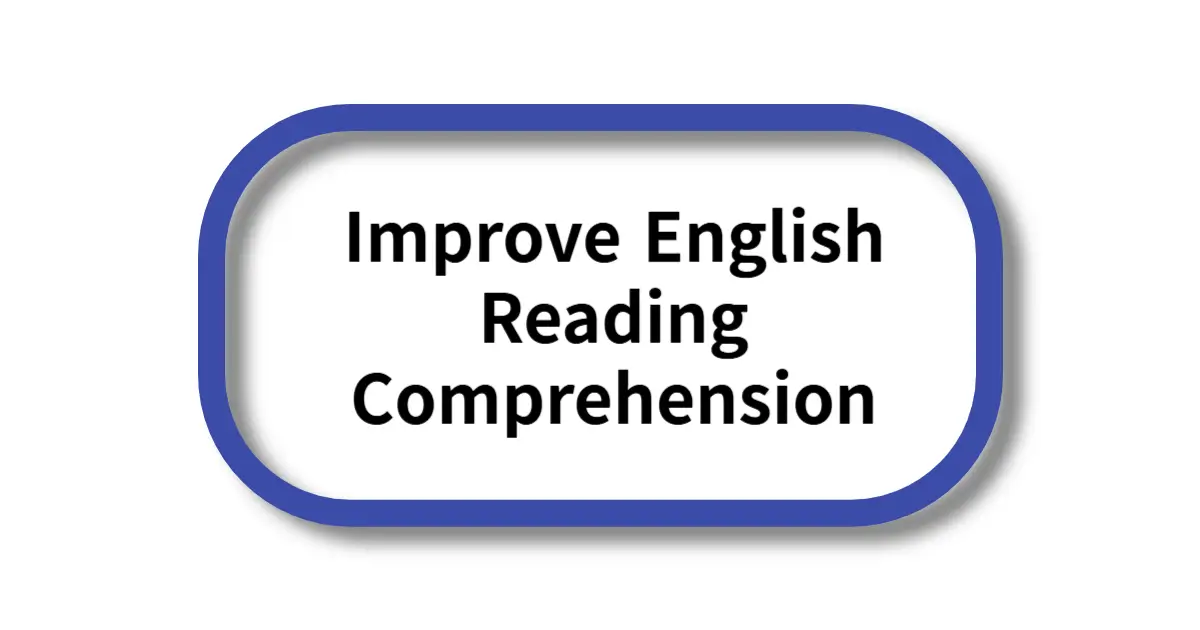Reading is more than just recognizing words—it’s about understanding the meaning behind them, connecting ideas, and expanding your knowledge. If you’re learning English, improving your reading skills will help you become more confident, learn new vocabulary faster, and enjoy a wider range of books, articles, and resources. In this post, we’ll explore practical tips to improve English reading comprehension.
Reading Comprehension Strategies : Reading Fluency Tips
1. Choose the Right Reading Materials
Start with materials that match your current English level. If the text is too difficult, you may feel discouraged. If it’s too easy, you won’t progress.
Good options include:
- Graded readers designed for English learners
- Short articles from reliable websites like BBC Learning English
- Bilingual books with translations for quick reference
As your skills improve, challenge yourself with more advanced texts such as newspapers, magazines, or novels.
2. Read Every Day
Consistency is key to building reading fluency. Aim for at least 15–30 minutes of daily reading. Short, regular sessions are more effective than long, infrequent ones.
You can:
- Read news headlines in English every morning
- Follow blogs that post short, interesting articles
- Keep an English book or e-reader with you for idle moments
How to Improve English Listening Skills: 7 Practical Tips for Global Learners
3. Expand Your Vocabulary in Context
Instead of memorizing random word lists, learn vocabulary through reading. When you see a new word:
- Try to guess its meaning from the context
- Check the dictionary only if necessary
- Write it in your vocabulary notebook with an example sentence
This way, you’ll remember the word and understand how it’s used naturally.
4. Use Active Reading Strategies
Active reading means engaging with the text, not just skimming through. Here are some strategies:
- Underline or highlight key points
- Write short summaries of paragraphs in your own words
- Ask questions as you read: “Why did this happen?” or “What’s the main idea?”
This approach improves focus and helps you retain more information.

(Image from pexels)
5. Practice Different Reading Styles
Not all reading is the same. Depending on your goal, use different reading techniques:
- Skimming – Quickly read for the main idea (useful for news articles)
- Scanning – Look for specific information (useful for schedules or instructions)
- Detailed reading – Carefully read every word for full comprehension (useful for academic texts)
6. Join a Reading Group or Book Club
Reading with others makes the process more enjoyable and keeps you motivated. You can:
- Discuss characters, themes, and vocabulary
- Share your thoughts and learn from different perspectives
- Practice speaking English while talking about what you read
You can find online reading clubs for English learners on platforms like Facebook, Reddit, or Meetup.
7. Track Your Progress
Keep a reading journal to record:
- Books or articles you’ve read
- New words you’ve learned
- Your reading speed and comprehension improvement
Seeing your progress will boost your confidence and keep you motivated.
Best Free Apps to Learn English in 2025 (That Actually Work)
Final Thoughts – Improve English Reading Comprehension
Improving your English reading skills takes time and dedication, but it’s one of the most rewarding parts of learning a language. By reading regularly, expanding your vocabulary in context, and practicing active reading techniques, you’ll soon notice your comprehension improving.
The key is to enjoy the process—choose topics you love, explore different genres, and let your curiosity guide you.
Additional Reading Practice Sites
If you’d like to explore more resources to accelerate your English reading development, these websites offer structured lessons, graded content, and engaging texts suitable for learners at various levels—perfect for reinforcing what you’ve learned in this article.
- BBC Learning English – Reading Skills – Short lessons and articles to improve reading comprehension
- News in Levels – News stories written in three difficulty levels for English learners
- Project Gutenberg – Free e-books to practice reading without cost
- British Council LearnEnglish – Reading Practice – Interactive reading activities organized by CEFR level (A1–C1), complete with vocabulary support and comprehension exercises.

